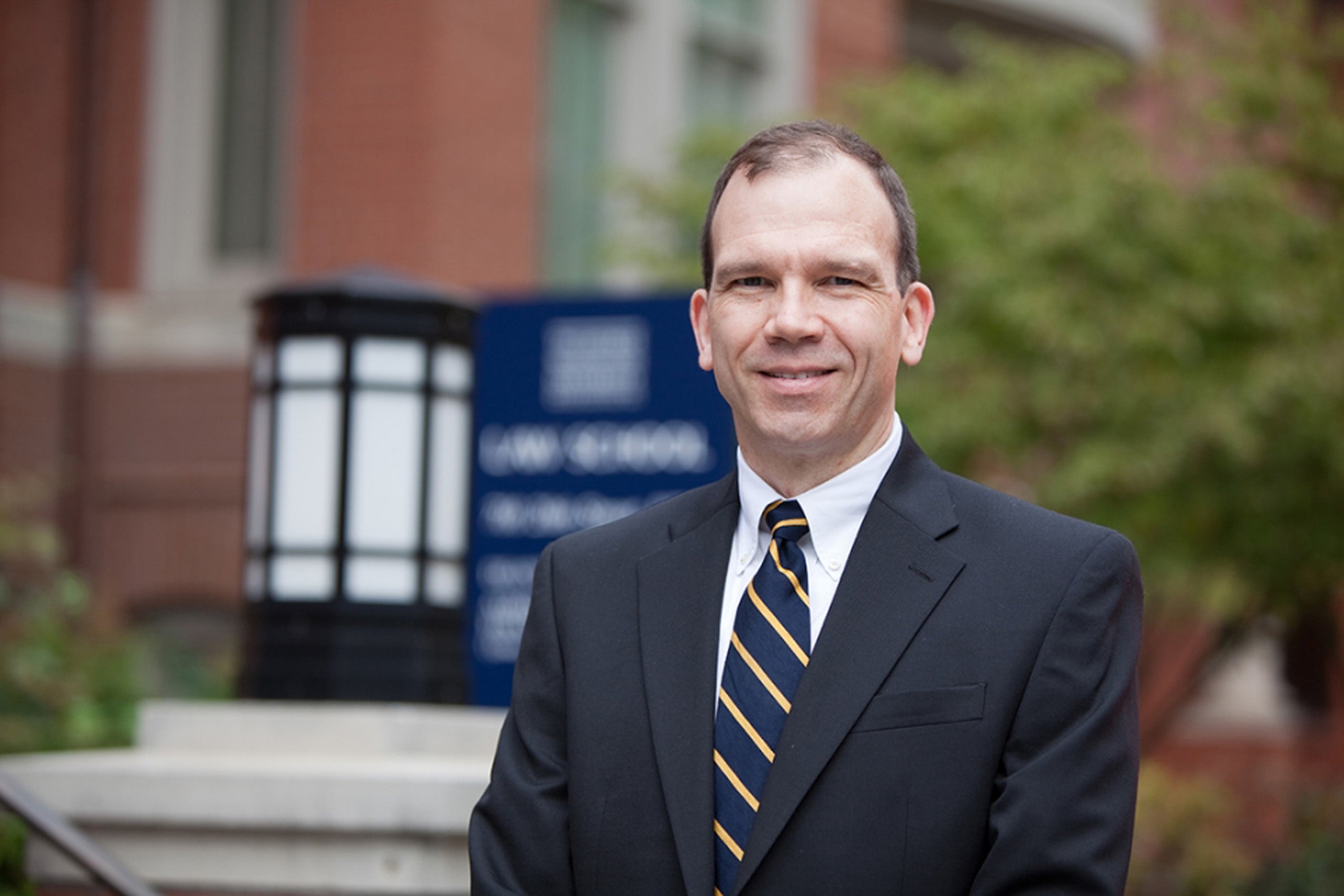Even after serving in the military for nearly 28 years, Gregory Maggs ’88 didn’t want to leave it. But his new job required him to be a civilian. Luckily for him, he still has a say in military matters. A big say, indeed.
In 2018, Maggs was appointed to a 15-year term as a judge on the United States Court of Appeals for the Armed Forces. It was “a dream come true,” he said, for someone steeped in military justice — he had written a book on the subject and had already served as a military trial judge and appellate judge on the Army Court of Criminal Appeals (he now hears appeals of decisions made in that and other military courts).
Prior to his current appointment, Maggs attained the rank of colonel as a reserve officer in the U.S. Army Judge Advocate General’s Corps. His full-time job beginning in 2000 was as a professor at the George Washington University Law School, where he taught primarily constitutional law and co-directed the National Security & U.S. Foreign Relations Law LL.M. program. As he took on more responsibilities for his reserve duties, the challenge of balancing his dual careers became steeper. He recalled some weeks teaching for a few days, then immediately driving to a distant post to hear a case. Nevertheless, he pointed to the rewards found in the diversity of people he encountered and the experiences he enjoyed.
“I met really two different groups of people in my life,” said Maggs. “I met the academics and they had a lot to offer. And then I met some very practical, very intelligent, hardworking senior Army officers. I feel very lucky having that career.”
As an academic, he followed the career path of his father, Peter Maggs, a Harvard Law graduate (’61) and law professor. His military career, however, came about more by happenstance. During his clerkship on the U.S. Court of Appeals for the 9th Circuit (he also clerked on the Supreme Court for both Justices Anthony Kennedy ’61 and Clarence Thomas), a case involved an Army veteran contesting his benefits. As it turned out, all the judges and the attorneys arguing the case were Army veterans as well. In fact, Maggs was the only person in the courtroom who had not served. When he went back into chambers, he opened a copy of an ABA journal that featured an advertisement about becoming a JAG officer. He submitted an application then and there.
Judges on the Court of Appeals for the Armed Forces must resign from the military before assuming the bench, a product of reform in order to eliminate the possibility of influence by high-ranking military personnel, according to Maggs. The cases that reach his court typically involve serious offenses. “Nobody walks away from a court-martial happy,” he said. “No matter what, it is a very somber and difficult situation.”
His court differs from Article III courts, he said, in that during his nomination process he was not asked questions related to political matters. After he was recommended by then-Secretary of Defense James Mattis, he received the ultimate bipartisan approval: unanimous consent from the U.S. Senate. The court operates on the same bipartisan basis, he said.
I don’t think we are dominated by any one school of thought. I disagree with the judges that were appointed by the Republicans about as much as I disagree with the judges appointed by Democrats.
“I don’t think we are dominated by any one school of thought,” Maggs said. “I disagree with the judges that were appointed by the Republicans about as much as I disagree with the judges appointed by Democrats, and [our court is] a very civil place to work. You don’t see nasty comments in our opinions. All the judges are friends with each other.”
He learned long ago from Justices Kennedy and Thomas about the importance of sustaining relationships with colleagues over the long term, even amid differences. They were well-respected on the Court, he said, and interacted with fellow justices in a nonconfrontational, cooperative way.
Maggs is someone who has made lasting commitments — to the military; to George Washington, where he still lectures; and in many other aspects of his life. “That’s one thing about law too,” he said, “which is it really rewards experience. The longer you do something, you just have an advantage because you’ve seen a lot.”
